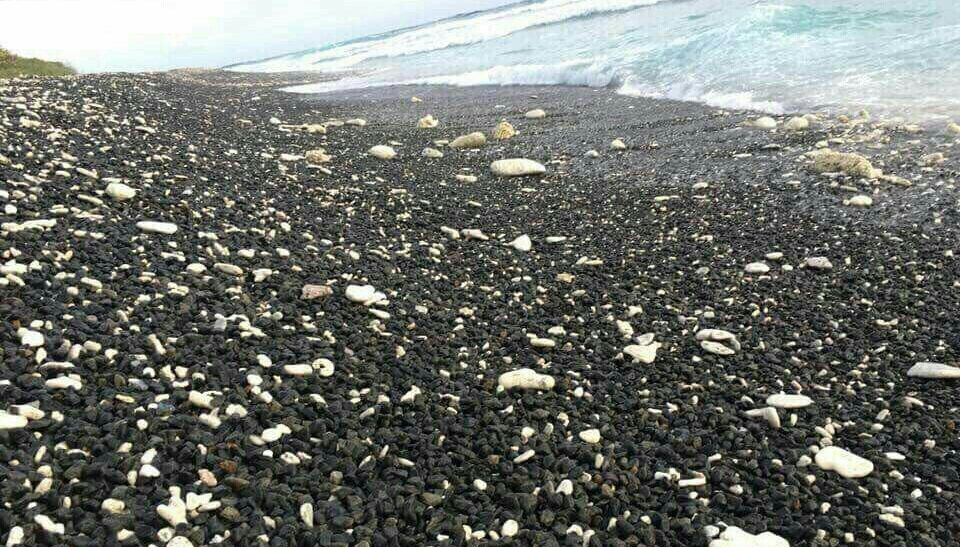On Fuvahmulah’s blackened beach, workers begin cleanup of tonnes of dumped rock pieces by hand
Workers are combing Fuvahmulah’s beach by hand in an effort to clean up several thousand tonnes of aggregate dumped on the island’s reef in a historic environmental disaster, as the EPA remains tightlipped on the extent of the damage.

04 Jan 2017, 09:00
On the island of Fuvahmulah, along a stretch of pristine beach blackened by construction aggregate, workers are sifting through rocks and sand by hand in an effort to remove several thousands of tonnes of crushed rock dumped by a ship that ran aground on the island’s treacherous reef last August.
Since the painstaking task began two weeks ago, some 30 workers have only managed to remove 16 bags of the rock pieces.
Nearly 5000 tonnes of rock pieces and river sand were controversially dumped on the southern island’s reef in September with the Environmental Protection Agency’s approval in a desperate bid to save the sinking cargo ship, which had collided with the reef amid stormy weather.
With the reef clean up yet to begin, reportedly because of continuing bad weather, removing the aggregate washed up on Fuvahmulah’s shores may take up to a year, according to workers.
Become a member
Get full access to our archive and personalise your experience.
Already a member?
Discussion
No comments yet. Be the first to share your thoughts!
No comments yet. Be the first to join the conversation!
Join the Conversation
Sign in to share your thoughts under an alias and take part in the discussion. Independent journalism thrives on open, respectful debate — your voice matters.




